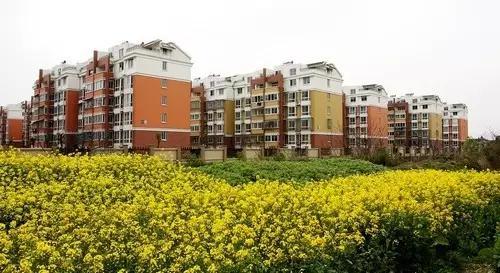How to carry out compensation and resettlement for rural demolition?
Source: Nanjing lawyer Network
As we all know, the compensation for demolition involves the interests of the demolition party and the front of the demolition. In the process of rural housing demolition, strict legal procedures are generally involved, such as housing requisition compensation law, basic principles of compensation, public interest, compensation calculation standards and resettlement principles. When it comes to the interests of the demolition person and the demolished person, the law of our country stipulates the legal procedure and compensation standard of rural house demolition. The following is to introduce the compensation and resettlement of rural house demolition.
Compensation and resettlement is mainly based on the use and floor area of the house to be demolished, generally based on the property right certificate of the premises, the rural homestead use certificate or the record of the building approval document. If the record is inconsistent with the reality, except for the illegal buildings that have been confirmed in accordance with the law, the actual area shall prevail. The compensation and resettlement of rural house demolition mainly include:

I. handling of special circumstances
1. At the time of the announcement of land expropriation, if the demolished person has obtained the building approval documents and the new house has been completed, compensation shall be given to the new house and no compensation shall be given to the old house that should be demolished but not demolished. At the time of the announcement of land expropriation, if the demolished person has obtained the building approval document but the new house has not yet been completed, the demolished person shall immediately stop building the house, and the specific amount of compensation may be compensated with reference to the contents of the building approval document, it may also be negotiated by the parties to the demolition.
2. Appropriate compensation may be given for the demolition of temporary buildings that do not exceed the approved time limit.
3. Buildings that violate the law and should be demolished free of charge, temporary buildings that exceed the time limit for approval, and those that build, rebuild or expand houses and their accessories without authorization after the land requisition announcement shall generally not be compensated.
4. Within the scope of demolition, if there are both state-owned land and collective land, the compensation and resettlement of houses for demolition and relocation within the scope of state-owned land shall be carried out in accordance with the provisions on the management of urban housing demolition and relocation; the compensation and resettlement of houses within the scope of collective land shall be carried out in accordance with the provisions of collective-owned land demolition compensation and resettlement, such as local regulations in accordance with urban housing demolition provisions, from its provisions.
II. Provisions on compensation and resettlement for demolition and relocation of residential houses
1. Compensation and resettlement for the cancellation of the village or villagers' group system of land expropriation.
The person to be demolished can choose monetary compensation or the exchange of property rights with the same value as the monetary compensation.
The formula for calculating the amount of monetary compensation is generally as follows: (the replacement unit price of demolished houses is combined into the new + base price of land use right per square meter of construction area of new multi-storey commercial housing in the same area + price subsidy) × the construction area of demolished houses.
If the replacement method is selected for the evaluation of demolished houses, the construction and security replacement unit price shall be combined into a new one, which shall be evaluated by a real estate evaluation institution qualified for house demolition evaluation; the basic land use right price and price subsidy standards for each square meter of construction area of new multi-storey commercial housing in the same area shall be formulated and promulgated by the people's governments of the city and county where the houses are demolished according to the actual situation of the land market.
2. Compensation and resettlement that cannot be revoked by the village or villagers' group system of land requisition.
Lawyers should understand that according to the current provisions, the demolished persons who have not been transferred to urban household registration shall be compensated and resettled in accordance with the following provisions:
In areas with conditions for changing land and building houses, the demolished person may apply for new housing on homestead within the central village or residential area determined by the overall land use plan of the township (town), and receive corresponding monetary compensation.
The formula for calculating the amount of monetary compensation is as follows: (the replacement unit price of the demolished house is combined into a new + price subsidy) × the construction area of the house to be demolished; the expenses required by the demolished person to use the new homestead, shall be paid by the construction unit to the village or villagers' group of the expropriated land. The procedures for examining and approving applications for new houses on homestead by the demolished persons shall be carried out in accordance with the relevant provisions of the state and local rural housing construction.
In areas that do not have the conditions for building houses in different places, they can choose monetary compensation or property rights housing exchange with the same value as monetary compensation. The person to be demolished shall no longer apply for new housing on homestead.
3. Other compensation
The lawyer shall understand and inform the client that the demolition party shall compensate the relocation subsidy, the equipment relocation fee and the temporary resettlement subsidy during the transition period, and increase the temporary resettlement subsidy from the date when the transition period expires.
4. The principle of compensation should be that the living level of the people to be demolished will not be reduced as a result of demolition.
III. Compensation and resettlement for the demolition of non-residential houses
In the service of compensation for the demolition of non-residential houses, lawyers should remind the parties that such demolition and compensation should be conducive to the development of the local economy and prevent the negative impact of demolition on the original local industry, commerce and employment.
The standard of compensation is generally as follows:
1. Demolish the non-residential houses owned by enterprises owned by rural collective economic organizations in the form of shares of land use rights, joint ventures, etc., and jointly organized by other units and individuals, the formula for calculating the amount of monetary compensation is as follows: the replacement price of the demolished houses + the corresponding acquisition fees for land use rights
2. The replacement price of the demolished house and the corresponding acquisition fee of the land use right shall be assessed by the real estate appraisal agency if the parties fail to reach a consensus.
3. Other compensation:
(1) the cost of equipment relocation and installation calculated according to the national and local transportation price of goods and the installation price of equipment.
(2) the cost of newly settled equipment that cannot be restored to use is combined at the replacement price.
(3) the appropriate compensation for the suspension of production and business caused by demolition.
(4) the compensation for other non-residential houses, shacks attached to residential houses, and other above-ground structures shall be carried out in accordance with the property compensation standards for land expropriation built by the relevant local countries.
- Prev

The "stupid" spraying machine finished spraying the greenhouse in 5 minutes.
The "stupid" spraying machine finished spraying the greenhouse in 5 minutes.
- Next

Everything is fine in the city, why are so many people still yearning for life in the countryside?
Everything is fine in the city, why are so many people still yearning for life in the countryside?
Related
- A course of planting techniques and methods on how to grow carrots
- How to plant the latest tulips?
- Is it better to pick tea in the morning or in the afternoon? When is the best time for tea to be picked? what is the third or fifth tea?
- Launch Yuanxiao Happy combination Haocha + Tea Yuan healthy Taste
- Penghu Tourism "Fireworks 20 Parade with You"
- 2022 West Lake Happiness holds "Digital Revitalization Voucher" and draws iphone13 and laptop.
- Banqiao Fuzhou social houses are designed to change start-up combined with police elimination to create a safe and livable environment
- The convenient measure of "mechanical weeding" in Xinbei has been abused and the Agriculture Bureau has imposed heavy penalties on the illegal land consolidation.
- Changgeng University Joins Hands with Four Memory Factories to Rescue Memory Talent Shortage
- The list of Taiwan's top 100 MVP managers is listed by the Director-General of the Farmers' Association of Sanxia District.

